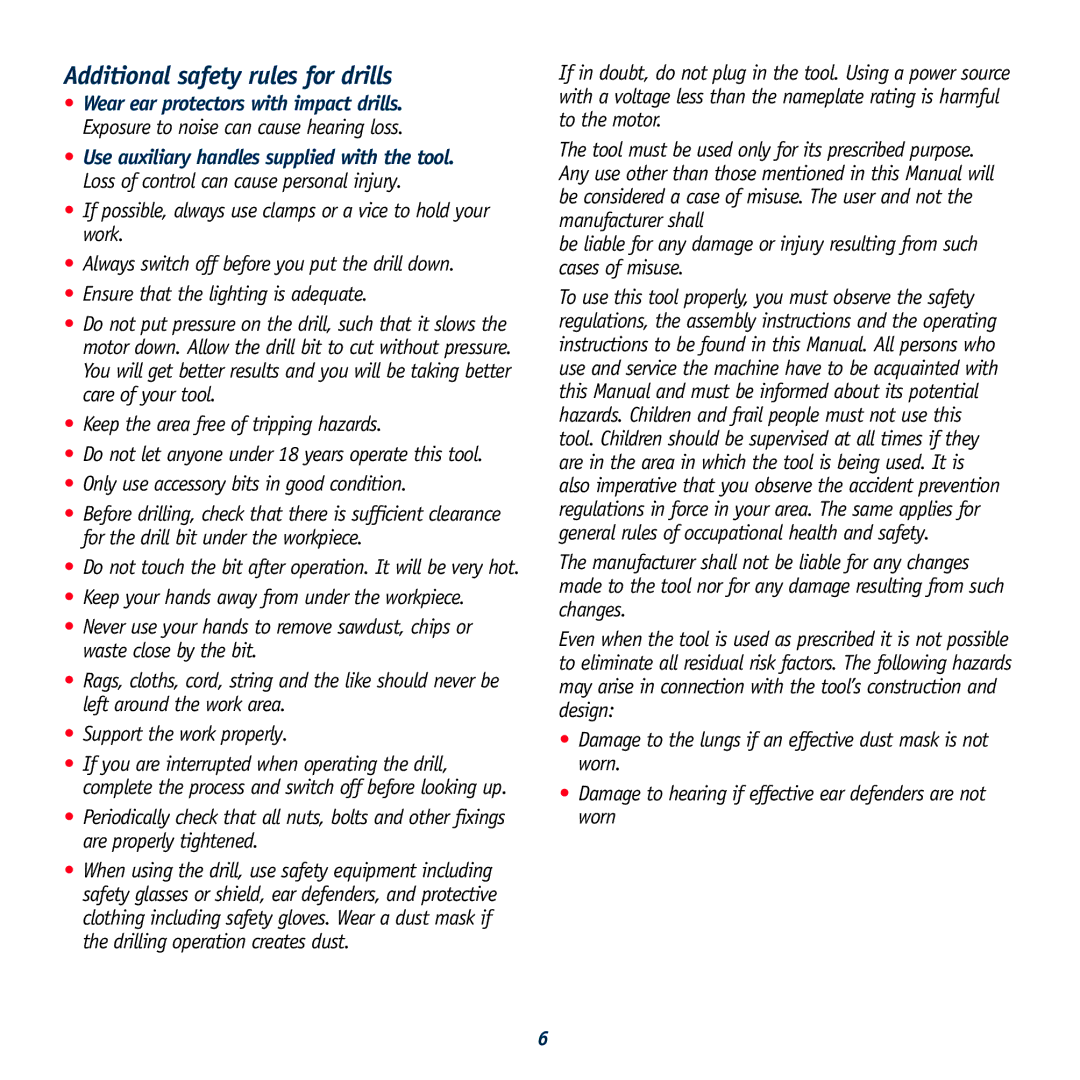Additional safety rules for drills
•Wear ear protectors with impact drills. Exposure to noise can cause hearing loss.
•Use auxiliary handles supplied with the tool. Loss of control can cause personal injury.
•If possible, always use clamps or a vice to hold your work.
•Always switch off before you put the drill down.
•Ensure that the lighting is adequate.
•Do not put pressure on the drill, such that it slows the motor down. Allow the drill bit to cut without pressure. You will get better results and you will be taking better care of your tool.
•Keep the area free of tripping hazards.
•Do not let anyone under 18 years operate this tool.
•Only use accessory bits in good condition.
•Before drilling, check that there is sufficient clearance for the drill bit under the workpiece.
•Do not touch the bit after operation. It will be very hot.
•Keep your hands away from under the workpiece.
•Never use your hands to remove sawdust, chips or waste close by the bit.
•Rags, cloths, cord, string and the like should never be left around the work area.
•Support the work properly.
•If you are interrupted when operating the drill, complete the process and switch off before looking up.
•Periodically check that all nuts, bolts and other fixings are properly tightened.
•When using the drill, use safety equipment including safety glasses or shield, ear defenders, and protective clothing including safety gloves. Wear a dust mask if the drilling operation creates dust.
If in doubt, do not plug in the tool. Using a power source with a voltage less than the nameplate rating is harmful to the motor.
The tool must be used only for its prescribed purpose. Any use other than those mentioned in this Manual will be considered a case of misuse. The user and not the manufacturer shall
be liable for any damage or injury resulting from such cases of misuse.
To use this tool properly, you must observe the safety regulations, the assembly instructions and the operating instructions to be found in this Manual. All persons who use and service the machine have to be acquainted with this Manual and must be informed about its potential hazards. Children and frail people must not use this tool. Children should be supervised at all times if they are in the area in which the tool is being used. It is also imperative that you observe the accident prevention regulations in force in your area. The same applies for general rules of occupational health and safety.
The manufacturer shall not be liable for any changes made to the tool nor for any damage resulting from such changes.
Even when the tool is used as prescribed it is not possible to eliminate all residual risk factors. The following hazards may arise in connection with the tool’s construction and design:
•Damage to the lungs if an effective dust mask is not worn.
•Damage to hearing if effective ear defenders are not worn
6
